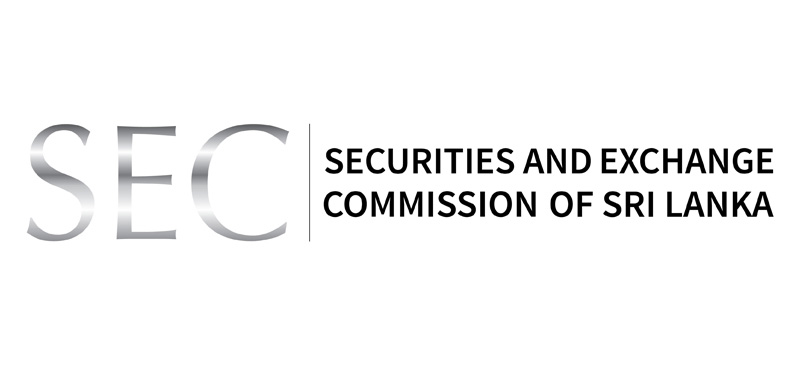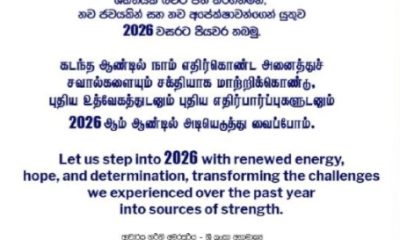Business
Belated economic reforms: Lankans to swallow more ‘painful medicine’

‘Accumulated issues in the past have now exploded
‘Time has come to put the house in order’
‘Dismal fiscal sector has caused imbalances in the macro-economy’
‘Engagement with IMF, a starting point in implementing critical reforms’
by Sanath Nanayakkare
The Ministry of Finance (MOF) said last week that Sri Lanka urgently needs to undertake difficult, but much needed and far-reaching reforms to address the accumulated and persistent issues in the country’s fiscal sector.
In a report titled ‘Fiscal Sector: Present Situation and Way Forward’, MOF pointed out that dismal fiscal sector performance has caused many imbalances in the macro-economy.
“Exceptionally low tax revenue, rigid recurrent expenditure, a large budget deficit, an accumulated and now unsustainable debt are the key concerns in the fiscal sector. Responsible and disciplined fiscal management has become more important than ever. In this process, the country and its citizens will have to go through a period of difficulty,” MOF warned.
The report further said:
“A strong social protection network is required for the vulnerable and needy segments as reforms will be painful.”
“The time has come to put the “house in order” and revamp the government’s fiscal operations to strengthen macroeconomic stability and facilitate economic growth in the medium to long term.”
“Deficit financing poses a critical challenge due to the shortfall of foreign financing following the loss of international capital market access. The resulting rise in monetary financing has caused severe macroeconomic imbalances.”
“The dismal performance of the fiscal sector over the years has contributed to macroeconomic instability and failed to support long-term growth. The excess aggregate demand generated by unsustainable fiscal deficits has resulted in elevated inflation, pressure on the balance of payments (BOP) and currency volatility.”
“Sri Lanka today is facing a severe BOP crisis with insufficient foreign exchange to buy essential imports such as food, energy,and pharmaceuticals, let alone meeting its debt service obligations. Sound macroeconomic fundamentals cannot be achieved without prudent and sustainable fiscal outcomes.”
“Accumulated issues in the past have now exploded and caused severe disruptions to the day-to-day lives of Sri Lankans, leading to widespread public displeasure and social unrest.”
“The fiscal sector performance in the recent past is characterised by exceptionally low government revenue, rigid recurrent expenditure, high budget deficits, and accumulated debt which is now unsustainable. The weak fiscal position has manifested in credit rating downgrades, loss of access to international capital markets and foreign financing. As a result, the government has increasingly relied on domestic financing of the budget, including monetary financing by the Central Bank, in turn leading to significant macroeconomic imbalances.”
“Government revenue declined particularly sharply in the last two years due to various reasons including the economic downturn caused by the COVID-19 pandemic, import restrictions imposed to ease the external sector pressure, but
most importantly, due to the ultra-low tax regime introduced in late 2019 and COVID-19 related easing measures in early 2020. Even before these tax cuts, Sri Lanka was a country with one of the lowest revenue-to-GDP ratios in the world, and the tax cuts drove Sri Lanka closer to the bottom of this list.”
“The government’s decision to seek the assistance of the International Monetary Fund (IMF) will be a starting point and a catalyst in implementing these critical reforms with the support of the citizens and other stakeholders.”
While acknowledging the fact that government fiscal operations have played an important role in improving economic and social conditions in Sri Lanka during its post-independence history, MOF went on to say that, “Failure to implement required policy reforms at this critical juncture will be very costly. However, it will lay a strong foundation to create a resilient economy for future generations.”
Central Bank Governor Dr. Nandalal Weerasinghe said on Friday that the Central Bank has taken measures required to stabilize the economy by taking the right monetary policy measures in terms of price adjustments and by increasing policy rates.
“Now, the fiscal side also needs implementing critical measures such as increasing state revenue by way of raising taxes. There is complete understanding on improving macro-economic fundamentals and decisions will be made to address the BOP issue, debt sustainability and enhancing state revenue in order to turn around the economy to a more resilient one,” he said.
The Governor noted that sooner the social and political stability were restored, the better it would be for stabilizing the economy and shifting it to growth path.
In September 2020, responding to a downgrade in credit ratings from Moody’s, a global rating agency, from a B2 to a Caa1, Sri Lanka’s Finance Ministry hit back claiming that such a report was ‘unwarranted, premature and reckless’.
In November 2021, former governor of the Central Bank Ajith Nivard Cabraal said that debt restructuring was underway without assistance from IMF and said, “We have to manage our debt without using the word ‘restructuring’ in a frivolous manner.”
Business
SEC Sri Lanka eases Minimum Public Holding Rules for listings via introductions to boost market flexibility

The Securities and Exchange Commission of Sri Lanka (SEC) has approved amendments to the Colombo Stock Exchange (CSE) Listing Rules to provide greater flexibility regarding the Minimum Public Holding (MPH) requirement for companies listing through the Introduction method.
These revisions were proposed and deliberated under Project 6 – New Listings (Public and Private), one of 12 key strategic initiatives launched by the SEC to strengthen Sri Lanka’s capital market framework. Project 6 aims to drive national capital formation, promote listings by highlighting benefits and opportunities for listed entities, and attract large-scale corporates to enhance market depth, liquidity, and investor confidence.
The amendments reflect a joint effort by the SEC and CSE, underscoring strong collaboration between the regulator and the Exchange to address evolving market needs while maintaining market integrity, transparency, and investor protection.
The salient features of the amendments to the CSE listing Rules are as follows;
Entities seeking listing by way of an Introduction on the Main Board or Diri Savi Board that are unable to meet the MPH requirement at the time of submitting the initial listing application, may now be granted a listing, subject to certain conditions on compliance.
Non-public shareholders who have held their shares for a minimum period of eighteen months prior to the date of the initial listing application may divest up to a maximum 2% of their shares each month during the six months commencing from the date of listing, and simultaneously, be subject to a lock-in requirement of 30% of their respective shareholdings as at the date of listing, until MPH compliance or 18 months from the date of listing, whichever occurs first.
A phased MPH compliance framework has been introduced requiring a minimum 50% compliance with MPH requirement within 12 months and full compliance within 18 months from the date of listing.
Entities should include clear disclosures in the Introductory Document confirming their obligation to meet MPH requirements within the prescribed timelines.
In the event of non-compliance with the MPH requirement, certain enforcement actions have also been introduced.
The revised framework is expected to encourage more companies to consider listing via Introduction, thereby broadening market participation, improving liquidity, and contributing to the overall development of Sri Lanka’s capital market. Issuers, investors, and market intermediaries will benefit from a more enabling yet well-regulated listing environment.
Business
Manufacturing counters propel share market to positive territory

Stock market activities were positive yesterday, mainly driven by manufacturing sector counters, especially Sierra Cables, Royal Ceramics and ACL Cables. Further, there was some investor confidence in construction sector counters as well.
Amid those developments both indices moved upwards. The All Share Price Index went up by 150.54 points, while the S and P SL20 rose by 41.5 points. Turnover stood at Rs 4.65 billion with six crossings.
Those crossings were reported in Royal Ceramics which crossed 3.8 million shares to the tune of Rs 174.3 million; its share s traded at Rs 45.20, VallibelOne 1.4 million shares crossed to the tune of Rs 138.6 million; its shares traded at Rs 99, Melstacorp 500,000 shares crossed for Rs 87.24 million; its shares traded at Rs 174.50, Sierra Cables two million shares crossed for Rs 68.2 million, its shares sold at Rs 34.30, Kingsbury 1.5 million shares crossed for Rs 31.8 million; its shares traded at Rs 21.20.
In the retail market companies that mainly contributed to the turnover were; Sierra Cables Rs 418 million (20 million shares traded), Royal Ceramics Rs 363 million (eight million shares traded), Colombo Dockyards Rs 323 million (1.7 million shares traded), ACL Rs 311 million (3.5 million shares traded), Renuka Agri Rs 149 million (12.3 million shares traded), Sampath Bank Rs 94.7 million (648,000 shares traded) and Bogala Graphite Rs 86.4 million (529,000 shares traded). During the day 122.8 million shares volumes changed hands in 34453 transactions.
Yesterday the rupee opened at Rs 310.00/25 to the US dollar in the spot market, weaker from Rs 310.00/310.20 the previous day, dealers said, while bond yields were broadly steady.
By Hiran H Senewiratne
Business
Atlas ‘Paata Lowak Dinana Hetak’ celebrates emerging artists nationwide

Atlas, Sri Lanka’s leading learning brand, reaffirmed its purpose of making learning fun and enjoyable through the Atlas All-Island Art Competition 2025, which concluded with a gifting ceremony held recently at Arcade Independence Square under the theme ‘Atlas paata lowak dinana hetak’. Students from Preschool to Grade 11 showcased their talents across five categories, with all island winners receiving cash prizes, certificates, and gift packs. Additionally, merit winners in each category were also recognized. The event brought together students, parents, and educators, highlighting Sri Lanka’s cultural diversity, nurturing young talent, and reinforcing Atlas’s long-standing commitment to education, creativity, and building confidence among schoolchildren. The event concluded with the ‘Atlas Art Carnival’, which brought children and parents together through games and creative art activities in a fun and lively atmosphere.
-

 News6 days ago
News6 days agoStreet vendors banned from Kandy City
-

 Sports3 days ago
Sports3 days agoGurusinha’s Boxing Day hundred celebrated in Melbourne
-

 News6 days ago
News6 days agoLankan aircrew fly daring UN Medevac in hostile conditions in Africa
-

 News1 day ago
News1 day agoLeading the Nation’s Connectivity Recovery Amid Unprecedented Challenges
-

 Sports4 days ago
Sports4 days agoTime to close the Dickwella chapter
-

 Features2 days ago
Features2 days agoIt’s all over for Maxi Rozairo
-

 Features6 days ago
Features6 days agoRethinking post-disaster urban planning: Lessons from Peradeniya
-

 Opinion6 days ago
Opinion6 days agoAre we reading the sky wrong?



















